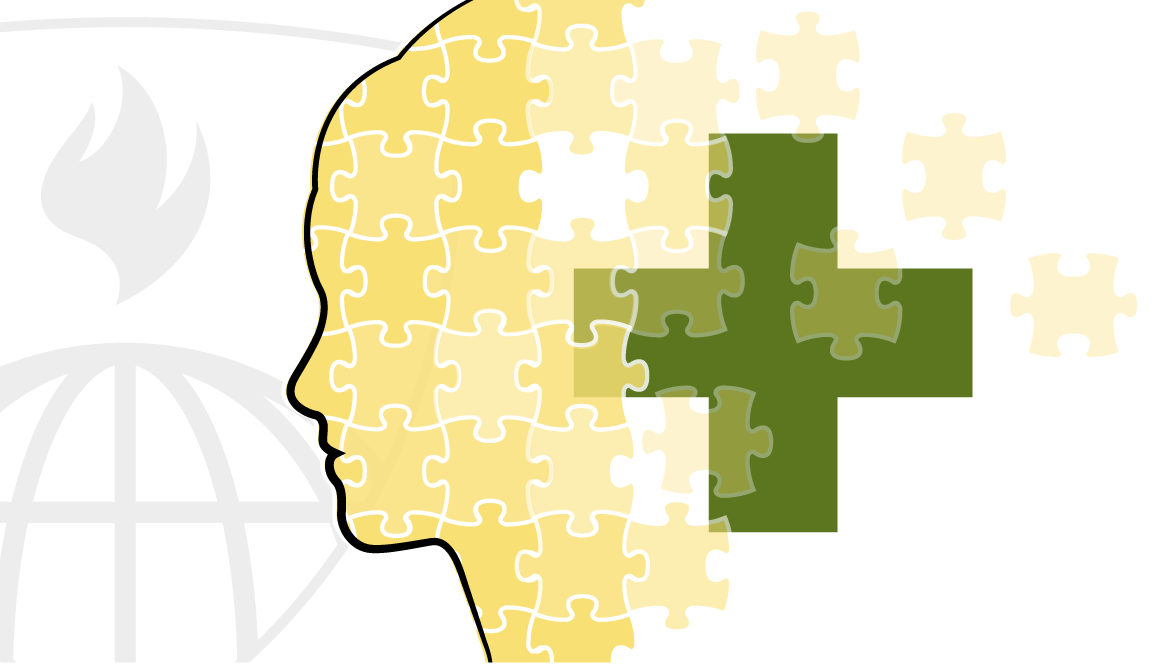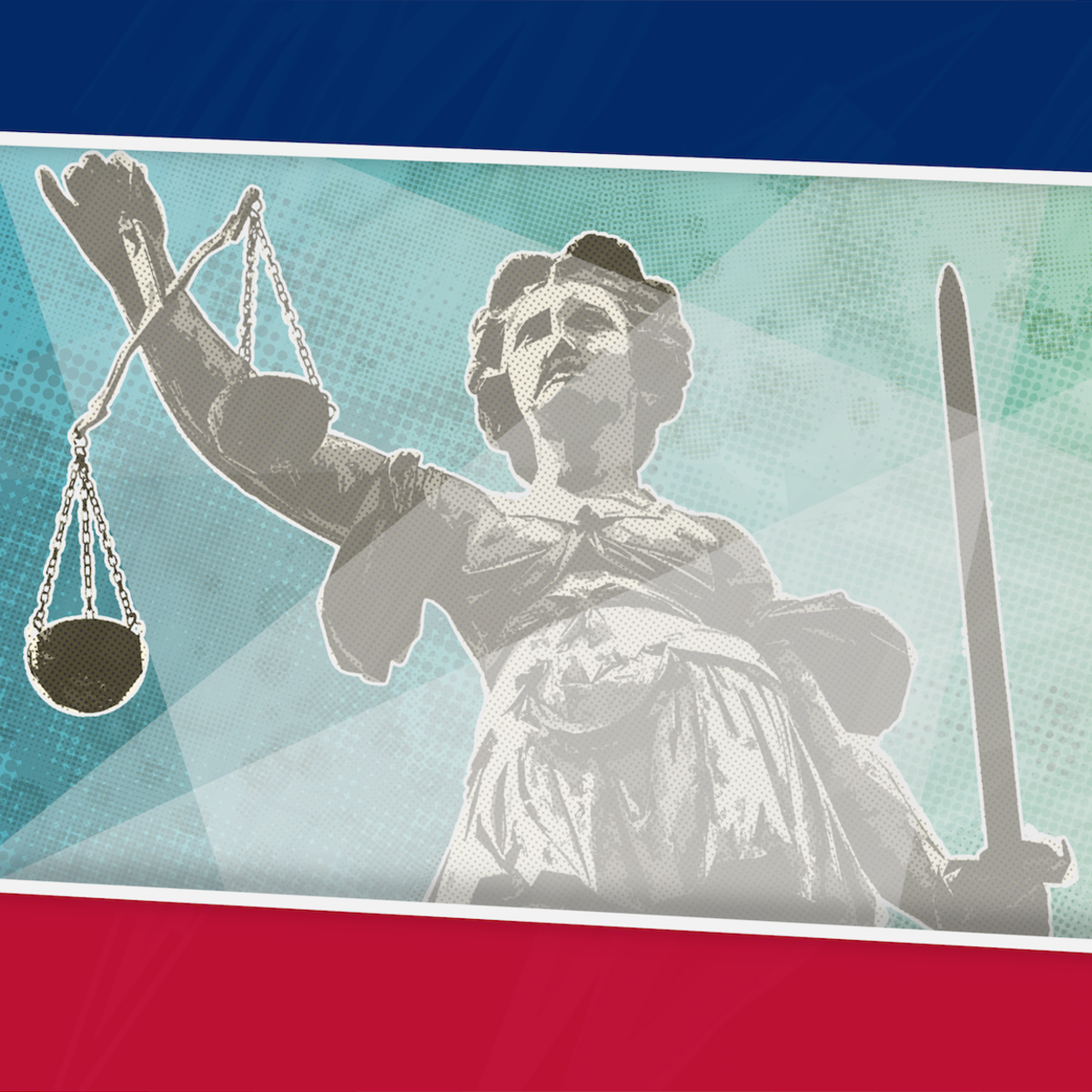Victim Advocate
Victim Advocate: A Comprehensive Career Guide
Victim advocates play a crucial role in supporting individuals affected by crime or traumatic events. They serve as guides and allies, helping victims navigate complex systems and access necessary resources during incredibly difficult times. This role demands empathy, resilience, and a strong commitment to empowering others.
Working as a victim advocate can be profoundly rewarding. Advocates directly contribute to the well-being and recovery of individuals, offering vital emotional support, practical assistance with legal processes, and connections to essential services. The opportunity to make a tangible difference in someone's life is a primary motivator for many entering this field.
Introduction to Victim Advocacy
Definition and Purpose
A victim advocate is a professional trained to support victims of crime. They offer emotional support, information about legal rights and processes, and assistance in finding resources like counseling, housing, or financial aid. Their primary purpose is to empower victims by ensuring their voices are heard and their rights are protected throughout the criminal justice process and during their recovery journey.
Advocates work in various settings, including non-profit organizations, government agencies (like prosecutor's offices or police departments), hospitals, and community centers. The core goal remains consistent: to provide compassionate, informed support tailored to the unique needs of each victim, helping them move from crisis to stability.
This field centers on empathy and service. It requires individuals who can connect with people experiencing distress, offer comfort without judgment, and navigate challenging bureaucratic systems on behalf of those they serve. It is fundamentally about standing with victims and ensuring they are not alone.
Historical Evolution
The role of the victim advocate emerged from the victims' rights movement, which gained momentum in the latter half of the 20th century. Initially, the criminal justice system focused primarily on the offender, often leaving victims feeling marginalized and unheard. Grassroots efforts by victim survivors and activists highlighted the need for dedicated support systems.
Legislation like the Victim and Witness Protection Act of 1982 and the Victims of Crime Act (VOCA) of 1984 in the United States provided federal recognition and funding for victim services. These milestones helped formalize the role of advocates and establish standards for victim assistance programs across the country.
Over time, the field has professionalized, with specialized training, credentialing programs, and academic disciplines like victimology developing. The focus has expanded beyond immediate crisis support to include long-term recovery, systemic advocacy, and attention to diverse victim populations and types of crime.
Understanding this history helps contextualize the importance of the advocate's role in ensuring a more balanced and compassionate justice system.
Primary Goals
Victim advocates focus on three main pillars of support. First is providing immediate emotional support and crisis intervention. This involves active listening, validating the victim's experience, and helping them cope with the initial shock and trauma following a crime.
Second, advocates offer crucial guidance through the often confusing legal and administrative systems. This can include explaining rights, assisting with paperwork (like restraining orders or victim impact statements), accompanying victims to court hearings, and liaising with law enforcement or legal professionals.
Third, advocates coordinate essential resources. They connect victims with services such as emergency shelter, medical care, mental health counseling, financial assistance, and support groups. This holistic approach addresses the multifaceted needs that arise in the aftermath of victimization.
Key Responsibilities of a Victim Advocate
Crisis Intervention and Safety Planning
One of the most immediate and critical tasks for a victim advocate is providing crisis intervention. This involves responding to urgent situations, offering immediate emotional support, and helping victims stabilize after a traumatic event. Advocates must remain calm and focused, providing a reassuring presence during intense moments.
Safety planning is another vital component. Advocates work collaboratively with victims, particularly those experiencing domestic violence or stalking, to assess risks and develop strategies to enhance their safety. This might involve identifying secure locations, changing routines, or utilizing legal protections.
Effective crisis intervention requires rapid assessment of needs and the ability to de-escalate tense situations. Safety planning demands careful consideration of the victim's circumstances and resources, empowering them to take protective actions. Both require sensitivity and practical problem-solving skills.
These courses offer foundational knowledge in handling crisis situations and understanding trauma's impact, which are central to this responsibility.
Navigating Legal Systems
Victims often find the criminal justice system intimidating and confusing. Advocates act as guides, explaining legal procedures, terminology, and victims' rights in clear, understandable language. They help victims prepare for court appearances and understand potential outcomes.
A key function is assisting with legal paperwork. This can range from helping file for protection orders (restraining orders) to preparing victim impact statements, which allow victims to share how the crime has affected them during sentencing hearings. Advocates ensure victims understand the purpose and process of these documents.
Court accompaniment is another common responsibility. The presence of an advocate can provide emotional support and reassurance during stressful legal proceedings, such as hearings, trials, or meetings with prosecutors. They help victims feel less isolated and more empowered within the system.
These courses provide insight into the legal frameworks surrounding specific types of victimization, like domestic violence or crimes requiring specific visas.
Understanding the legal terrain is crucial. This book offers insights into the complexities of domestic violence cases.
Connecting Clients with Resources
Victimization can create a cascade of needs beyond the legal system. Advocates act as crucial connectors, linking victims to a network of community resources. This often starts with immediate needs like safe housing or emergency shelter, particularly in cases of domestic violence or displacement.
Accessing appropriate counseling and mental health services is vital for recovery. Advocates help identify and connect victims with therapists, support groups, and mental health professionals specializing in trauma. They may also assist with navigating insurance or finding low-cost options.
Medical attention, follow-up care, and assistance with related expenses are also common needs. Furthermore, advocates might help victims apply for victim compensation funds, find transportation, access childcare, or secure other practical support services required for stability and healing.
These case management courses teach skills relevant to assessing needs and coordinating services, a core function of advocacy.
Advocacy in Other Settings
Beyond the criminal justice system, advocates often support victims in other areas of their lives impacted by the crime. This can include advocating within workplace settings, helping victims communicate with employers about necessary time off, safety accommodations, or potential impacts on job performance.
Similarly, advocacy might extend to educational institutions. Advocates can assist student victims in navigating school policies, requesting accommodations, or addressing safety concerns on campus. They ensure the victim's needs are understood and addressed appropriately.
This broader advocacy role recognizes that the effects of victimization are far-reaching. It requires advocates to understand various systems and effectively communicate and negotiate on behalf of the victim to minimize secondary hardships and support their overall recovery and well-being.
This course covers workplace dynamics related to harassment, a situation where advocacy might be needed.
Core Competencies and Skills
Communication and Empathy
Effective communication is paramount for a victim advocate. This includes active listening – truly hearing and understanding the victim's perspective, concerns, and needs without interruption or judgment. It builds trust and ensures the support provided is relevant and helpful.
Trauma-informed communication is essential. This means understanding how trauma affects individuals' behavior, memory, and emotional regulation, and adjusting communication accordingly. It involves patience, clarity, avoiding re-traumatizing language, and empowering victims by giving them choices and control.
Empathy, the ability to understand and share the feelings of another, underpins all advocate interactions. It allows advocates to connect genuinely with victims, validate their experiences, and provide compassionate support during vulnerable times. This skill is crucial for building rapport and fostering healing.
These courses focus on specific communication contexts relevant to advocacy, such as dealing with domestic violence dynamics or understanding consent.
Cultural Competency and Intersectionality
Victims come from all backgrounds, and their experiences of crime and trauma are shaped by their unique identities and societal positions. Cultural competency involves understanding, respecting, and responding effectively to the diverse cultural beliefs, values, and practices of the individuals served.
Awareness of intersectionality is crucial. This means recognizing that aspects of a person's identity (such as race, gender, sexual orientation, disability, socioeconomic status) can overlap and create unique experiences of discrimination, vulnerability, or resilience. Advocates must understand how these factors influence a victim's needs and access to resources.
Developing cultural humility – a lifelong commitment to self-evaluation and learning about other cultures – is key. It requires advocates to challenge their own biases and assumptions and approach each victim with openness and respect for their individual background and lived experience.
These books explore societal structures related to disability, class, race, and gender, offering valuable perspectives for understanding intersectionality.
Knowledge of Relevant Systems
A strong understanding of the criminal justice system is fundamental. Advocates need to know the typical stages of investigation and prosecution, the roles of different legal actors (police, prosecutors, judges), and the specific rights afforded to victims within their jurisdiction.
Knowledge of social service systems is equally important. Advocates must be familiar with the resources available in their community, including eligibility criteria and application processes for housing assistance, mental health services, victim compensation programs, and public benefits.
This knowledge allows advocates to provide accurate information, effectively navigate bureaucracies, and make appropriate referrals. Staying updated on changes in laws, policies, and available services is an ongoing part of the role.
Courses covering criminology and the justice system provide essential background knowledge.
Boundary-Setting and Self-Care
Working closely with individuals experiencing trauma can be emotionally taxing. Setting clear professional boundaries is crucial for both the advocate's well-being and the effectiveness of their support. This involves maintaining appropriate limits in relationships with clients and managing emotional involvement.
Recognizing the signs of vicarious trauma (also known as secondary traumatic stress) and burnout is vital. These are common occupational hazards in advocacy work. Symptoms can include persistent fatigue, anxiety, difficulty concentrating, and changes in worldview.
Developing robust self-care strategies is non-negotiable. This includes practices like regular exercise, mindfulness, seeking peer support or supervision, maintaining a healthy work-life balance, and engaging in activities outside of work that bring joy and restoration. Prioritizing self-care helps ensure longevity and effectiveness in this demanding field.
This course touches upon managing compassion fatigue, a related concept, and this book discusses disaster impacts, relevant to understanding trauma exposure.
Formal Education Pathways
Relevant Bachelor's Degrees
While requirements vary by employer and state, a bachelor's degree is often preferred or required for victim advocate positions, especially in government agencies or larger nonprofits. Degrees in fields like Social Work, Psychology, Sociology, or Criminal Justice provide a strong foundation.
Coursework in these programs typically covers human behavior, social systems, research methods, ethics, and specific topics like counseling skills, criminology, or family dynamics. This academic background equips aspiring advocates with theoretical knowledge and analytical skills relevant to the field.
Some universities offer specific concentrations or minors in victimology or victim services, providing more specialized preparation. Regardless of the major, coursework emphasizing communication, cultural diversity, and social justice issues is highly beneficial.
This book provides a comprehensive introduction to the study of crime victims.
Certifications and Credentials
While not always mandatory, professional certification can enhance credibility and job prospects. The National Advocate Credentialing Program (NACP), offered by the National Organization for Victim Assistance (NOVA), is a widely recognized credential.
NACP offers different levels of credentialing (Provisional, Basic, Intermediate, Advanced) based on experience and training hours. Obtaining these credentials demonstrates a commitment to professional standards and competency in core areas of victim advocacy.
Other specialized certifications may exist for specific areas, such as domestic violence advocacy or sexual assault advocacy, often offered at the state or local level by coalitions or specific organizations. These certifications often require completion of specific training curricula.
Pursuing certification shows dedication to the field and adherence to established best practices.
Graduate Programs
For those seeking advanced knowledge or leadership roles, a master's degree can be beneficial. Relevant graduate programs include Master of Social Work (MSW), Master's in Counseling, Criminal Justice, Public Administration, or specialized degrees in Victim Studies or Victim Services Management.
Graduate programs offer deeper dives into theory, research, policy analysis, and advanced clinical or administrative skills. An MSW, for example, often includes extensive clinical training useful for direct practice, while a Criminal Justice master's might focus more on systemic issues and policy.
Some leadership positions, research roles, or university teaching positions may require a graduate degree. It represents a significant investment in specialized expertise within the field of victim advocacy and support.
This course, while focused on exam prep, indicates the level of knowledge expected for licensed social workers, a common background for advocates.
Fieldwork and Practicum Requirements
Practical experience is invaluable in preparing for a career as a victim advocate. Many academic programs, particularly in social work and counseling, require internships, fieldwork, or practicum placements as part of the curriculum.
These hands-on experiences allow students to apply classroom learning in real-world settings under supervision. They provide exposure to the day-to-day realities of advocacy work, interaction with clients, and navigation of agency procedures and community resources.
Even if not formally required by an academic program, seeking volunteer opportunities or internships with victim service agencies is highly recommended. This practical experience is often a key factor considered by employers during the hiring process, demonstrating commitment and basic competency.
Consider exploring local non-profits or government agencies for volunteer or internship roles to gain this crucial experience.
Online and Continuing Education
Virtual Training Programs
Online learning offers flexible and accessible ways to gain knowledge and skills relevant to victim advocacy. Numerous organizations and educational institutions provide virtual training programs covering core competencies, specific types of victimization, and legal updates.
These programs allow individuals, including career changers or those in remote areas, to access high-quality training without geographical constraints. Look for programs accredited or endorsed by reputable bodies to ensure quality and relevance to professional standards.
OpenCourser is an excellent resource for finding relevant online courses. You can easily browse courses across various platforms covering topics like trauma-informed care, crisis intervention, and specific legal areas related to victim advocacy.
Specialized Workshops
Beyond foundational training, specialized workshops delve into specific areas of victim advocacy. Topics often include working with survivors of domestic violence, sexual assault, human trafficking, child abuse, or supporting victims from specific populations (e.g., LGBTQ+, elderly, immigrants).
These workshops provide in-depth knowledge and skills tailored to particular types of crime or victim needs. They are crucial for developing expertise and providing effective, nuanced support. Many are offered online or in short-term formats, suitable for working professionals.
Continuously seeking specialized training demonstrates a commitment to lifelong learning and staying current with best practices in serving diverse victim populations and addressing complex forms of victimization.
These online courses offer specialized knowledge in areas like domestic violence and trauma.
Continuing Education Units (CEUs)
For advocates who hold professional licenses (like social workers or counselors) or certifications (like NACP), maintaining credentials often requires completing a certain number of Continuing Education Units (CEUs) periodically.
CEUs ensure that professionals stay updated on the latest research, practice standards, legal changes, and ethical considerations within their field. Training programs and workshops approved for CEUs are widely available, including many online options.
Engaging in continuing education is not just about meeting requirements; it's a vital aspect of professional development. It helps advocates refine their skills, learn new approaches, and provide the highest quality of service to victims throughout their careers.
Self-Directed Learning Resources
Beyond formal courses and workshops, a wealth of resources exists for self-directed learning. Professional journals, books, webinars, podcasts, and reports from research institutions offer valuable insights into victimology, trauma, and advocacy practices.
Organizations like the Office for Victims of Crime (OVC), the National Network to End Domestic Violence (NNEDV), and state coalitions often publish resources and host webinars. Following reputable organizations and researchers online can provide ongoing learning opportunities.
OpenCourser's platform itself offers features beyond just finding courses. You can explore The Learner's Guide for tips on effective online learning or save resources to a personalized list using the Save to List feature for future reference.
These books offer in-depth explorations of topics relevant to victim advocacy and social justice.
Career Progression and Opportunities
Entry-Level vs. Senior Positions
Entry-level victim advocate roles typically focus on direct service delivery: crisis intervention, emotional support, resource connection, and basic system navigation. These positions often require a bachelor's degree or equivalent experience and completion of foundational advocacy training.
With experience, advocates may move into senior roles. These might involve handling more complex cases, providing mentorship or supervision to junior staff, specializing in a particular area (e.g., homicide victim support, elder abuse), or coordinating specific programs within an agency.
Senior positions often require several years of direct service experience, demonstrated expertise, and potentially advanced training or certification. They may involve more responsibility for case outcomes and program development.
Government vs. Nonprofit Sector
Victim advocates work in both government and nonprofit settings, each offering different career trajectories and work environments. Government positions are often found within prosecutor's offices, police departments, or specific state/federal victim service agencies.
Government roles may offer greater stability, standardized procedures, and potentially higher salaries or benefits, but might also involve more bureaucracy. Nonprofit organizations, ranging from small grassroots groups to large national agencies, often provide services with potentially more flexibility but can face funding challenges.
Career progression in either sector can lead to supervisory or management roles. The choice between sectors often depends on individual preferences regarding organizational culture, scope of work, and service delivery models.
Leadership Roles
Experienced victim advocates can advance into leadership positions focused on policy development or program management. These roles shift the focus from direct client service to broader systemic impact and organizational oversight.
Policy roles might involve advocating for legislative changes to enhance victims' rights, working with government agencies to improve service delivery standards, or conducting research to inform policy decisions. Program managers oversee victim service programs, manage budgets, supervise staff, write grants, and ensure program effectiveness.
These leadership positions typically require significant experience in the field, strong administrative and communication skills, and often a graduate degree in a relevant field like public administration, social work, or nonprofit management.
Entrepreneurial Paths
While less common, some experienced advocates pursue entrepreneurial paths. This could involve establishing a private advocacy firm, offering specialized consulting services to organizations, or developing training programs for other professionals.
Private advocates might contract with individuals, attorneys, or organizations needing specialized victim support or expertise. Consultants could help agencies improve their victim service protocols or provide training on topics like trauma-informed care.
Starting a private practice requires business acumen in addition to advocacy expertise, including marketing, financial management, and understanding legal and ethical considerations for private practitioners. It offers autonomy but also carries the risks associated with running a business.
Challenges Specific to Victim Advocates
Vicarious Trauma and Burnout
Constant exposure to stories of trauma and suffering can take a significant emotional toll on advocates. Vicarious trauma, or secondary traumatic stress, occurs when advocates internalize the traumatic experiences of their clients, leading to symptoms similar to PTSD.
Burnout is another major challenge, characterized by emotional exhaustion, cynicism or detachment, and a reduced sense of personal accomplishment. High caseloads, limited resources, and the emotionally demanding nature of the work contribute to high burnout rates in the field.
Addressing these challenges requires strong organizational support (e.g., reasonable caseloads, clinical supervision, supportive work environment) and individual commitment to robust self-care practices and boundary setting. Recognizing the risks and proactively managing them is crucial for sustainability.
Understanding grief and self-care are important aspects of managing the emotional demands of the role.
Funding Instability
Many victim advocacy programs, particularly within the nonprofit sector, rely heavily on grants and donations. This can lead to funding instability, impacting program sustainability, staffing levels, and the ability to consistently offer comprehensive services.
Changes in government funding priorities or economic downturns can significantly affect agency budgets. Advocates and program managers often spend considerable time on grant writing and fundraising efforts, diverting time from direct service or program development.
This financial uncertainty can create stress for staff and limit the reach and scope of services offered to victims. Advocacy for stable, adequate funding for victim services is an ongoing challenge for the field.
Ethical Dilemmas
Victim advocates frequently navigate complex ethical dilemmas. Maintaining client confidentiality while fulfilling mandatory reporting obligations (e.g., for child abuse or imminent harm) requires careful judgment and knowledge of legal and ethical guidelines.
Balancing the victim's autonomy and right to self-determination with the advocate's duty to promote safety can be challenging. For instance, a victim may choose a course of action that the advocate perceives as risky. Supporting the victim's choices while providing information about risks requires skill and ethical sensitivity.
Other dilemmas might involve conflicts of interest, managing dual relationships, or navigating systemic biases. Ongoing ethical training, supervision, and adherence to professional codes of ethics are essential for navigating these complexities responsibly.
Systemic Barriers
Advocates often work within systems (criminal justice, social services) that can be slow, complex, and sometimes unresponsive or re-traumatizing for victims. They may encounter systemic barriers that hinder a victim's access to justice or resources.
These barriers can include lack of culturally appropriate services, implicit biases within institutions, lengthy delays in legal processes, or inadequate resources allocated to victim support. Advocates must often push against these systemic issues on behalf of their clients.
Working to overcome these barriers requires persistence, strong advocacy skills, and sometimes collaborative efforts to promote systemic change. It can be frustrating work, highlighting the need for resilience and a focus on broader social justice issues alongside individual client support.
This book explores the intersection of various social factors in the context of crime, relevant to understanding systemic barriers.
Emerging Trends in Victim Advocacy
Technology's Role
Technology is increasingly influencing victim advocacy. Safety planning apps, secure communication platforms, and online resources provide new tools for victims and advocates. For instance, apps can help document abuse or provide discreet ways to seek help.
However, technology also presents challenges, such as cybersecurity risks, the potential for technology-facilitated abuse (e.g., cyberstalking), and the digital divide impacting access for some victims. Advocates need to be tech-savvy to leverage benefits while mitigating risks.
The use of telehealth and virtual platforms for providing support services expanded significantly, offering greater accessibility but also requiring adaptations in service delivery and considerations around privacy and rapport-building in a virtual environment.
Focus on Marginalized Communities
There is a growing recognition within the field of the need to better serve marginalized and underserved communities. This includes developing culturally specific services, addressing systemic inequities that disproportionately affect certain groups, and ensuring advocacy is inclusive and accessible.
Efforts focus on understanding the unique barriers faced by victims based on race, ethnicity, sexual orientation, gender identity, disability, immigration status, or socioeconomic background. Tailoring outreach and services to meet these specific needs is becoming a priority.
This involves ongoing training for advocates in cultural competency and anti-oppression frameworks, recruiting diverse staff reflective of the communities served, and partnering with community-based organizations trusted by marginalized groups.
These books provide critical perspectives on disability and the experiences of women, relevant to serving marginalized groups.
Policy Shifts
Legislative and policy changes continue to shape the landscape of victim rights and services. Advocates play a role in informing and responding to these shifts. Examples include changes to statutes of limitations, updates to definitions of consent, or new laws addressing specific crimes like human trafficking or cyberstalking.
There is ongoing debate and reform concerning approaches to criminal justice, such as restorative justice initiatives or alternatives to incarceration, which can impact the experiences and needs of victims. Advocates must stay informed about these evolving legal and policy contexts.
Advocacy efforts at local, state, and federal levels remain crucial for strengthening victim protections, securing funding for services, and ensuring policies are implemented effectively and equitably.
Courses on specific issues like gun violence reflect areas where policy shifts are actively debated.
Remote Advocacy Services
The expansion of remote service delivery, accelerated by recent global events, is a significant trend. Providing advocacy services via phone, video conferencing, or online chat offers increased accessibility for victims who face transportation barriers, live in rural areas, or have safety concerns about in-person meetings.
Developing effective protocols for remote advocacy, ensuring confidentiality and security, and training advocates in virtual communication skills are key aspects of this shift. Agencies are adapting their models to incorporate hybrid approaches, blending remote and in-person support.
While remote services enhance reach, challenges remain in building rapport virtually and ensuring equitable access for victims lacking reliable technology or internet connectivity. Best practices for remote advocacy continue to evolve.
Frequently Asked Questions (Career Focus)
Typical Salary Ranges?
Salaries for victim advocates vary significantly based on geographic location, type of employer (government vs. nonprofit), level of experience, education, and specific job responsibilities. Entry-level positions may start lower, particularly in nonprofits with limited budgets.
According to data from the U.S. Bureau of Labor Statistics (BLS), roles like social and human service assistants (a category that can include some advocacy functions) had a median annual wage of $38,520 in May 2022. However, advocates with specialized skills, advanced degrees, or supervisory responsibilities, particularly in government settings, may earn considerably more.
It's essential to research salary expectations specific to your region and the types of organizations you are interested in. Remember that while financially rewarding roles exist, many enter this field driven primarily by the desire to help others.
Can Paralegals Transition into Victim Advocacy?
Yes, individuals with a paralegal background can transition into victim advocacy. Paralegals possess valuable skills transferable to the role, including knowledge of the legal system, understanding of court procedures, experience with legal documentation, and strong organizational abilities.
To make the transition successful, paralegals may need additional training specific to victim services, such as crisis intervention techniques, trauma-informed care principles, and understanding the psychosocial needs of victims. Completing a victim advocacy training program or relevant certification can bridge knowledge gaps.
Highlighting relevant skills from their paralegal experience (e.g., client interaction, case management, navigating legal processes) while demonstrating an understanding of the unique emotional support aspects of advocacy will be key during job applications and interviews.
Part-Time/Volunteer Opportunities Available?
Yes, part-time and volunteer opportunities are widely available in victim advocacy. Many nonprofit organizations rely heavily on volunteers to supplement their staff and extend their reach. Crisis hotlines, shelters, and court accompaniment programs often utilize trained volunteers.
Volunteering is an excellent way to gain experience, explore the field, and contribute to the community, especially for students, career changers, or those unable to commit to full-time work. Part-time paid positions also exist, though they may be less common than full-time roles.
These opportunities often require completion of specific agency training. Check with local victim service providers, domestic violence shelters, sexual assault centers, or court systems for available volunteer or part-time roles.
Job Outlook Over Next Decade?
The job outlook for roles related to social and human services, which includes victim advocates, is generally positive. The BLS projects employment for social and human service assistants to grow 12 percent from 2022 to 2032, much faster than the average for all occupations.
Growth is driven by factors like increased awareness of social issues such as domestic violence and mental health, an aging population requiring services, and ongoing needs within the criminal justice system. Demand may be particularly strong for advocates specializing in areas like elder abuse or services for specific populations.
However, job prospects can be influenced by funding levels for social programs, especially in the nonprofit sector. Competition may exist for positions in certain desirable locations or specialized agencies.
Cities with Highest Demand?
Demand for victim advocates exists nationwide, but opportunities may be more concentrated in urban areas with larger populations and consequently higher numbers of social service agencies and criminal justice system components. Major metropolitan areas often have numerous government agencies and nonprofit organizations providing victim services.
However, demand also exists in smaller cities and rural areas, where resources might be scarcer, making the role of an advocate even more critical. Specific "hotspots" can fluctuate based on funding initiatives, local crime rates, and the presence of large universities or medical centers with associated support programs.
Researching job postings on national and local job boards, as well as networking with professionals in the field, can provide insight into current areas of high demand. Consider state victim assistance coalitions or national organizations for broader trends.
Essential Traits for Success?
Beyond formal qualifications, certain personal traits are essential for success and longevity as a victim advocate. Empathy and compassion are fundamental for connecting with and supporting individuals in distress. Patience is crucial when dealing with complex trauma responses and navigating slow systems.
Strong interpersonal and communication skills, including active listening and clear explanation, are vital. Resilience is key to managing the emotional demands of the work and coping with exposure to trauma without becoming overwhelmed. Cultural humility and non-judgmental acceptance are necessary for working effectively with diverse populations.
Other important traits include strong organizational skills for managing caseloads and documentation, problem-solving abilities for navigating complex situations, and a firm commitment to ethical practice and maintaining professional boundaries. A passion for social justice and empowering others often fuels those successful in this field.
Becoming a victim advocate is a challenging yet deeply meaningful career path. It requires a unique blend of compassion, resilience, and practical skills to effectively support individuals during their most vulnerable moments. While demanding, the opportunity to empower survivors and contribute to their healing journey offers profound personal and professional rewards. If you are drawn to service and possess the core competencies discussed, exploring this field further could lead to a fulfilling career making a tangible difference in the lives of others.























